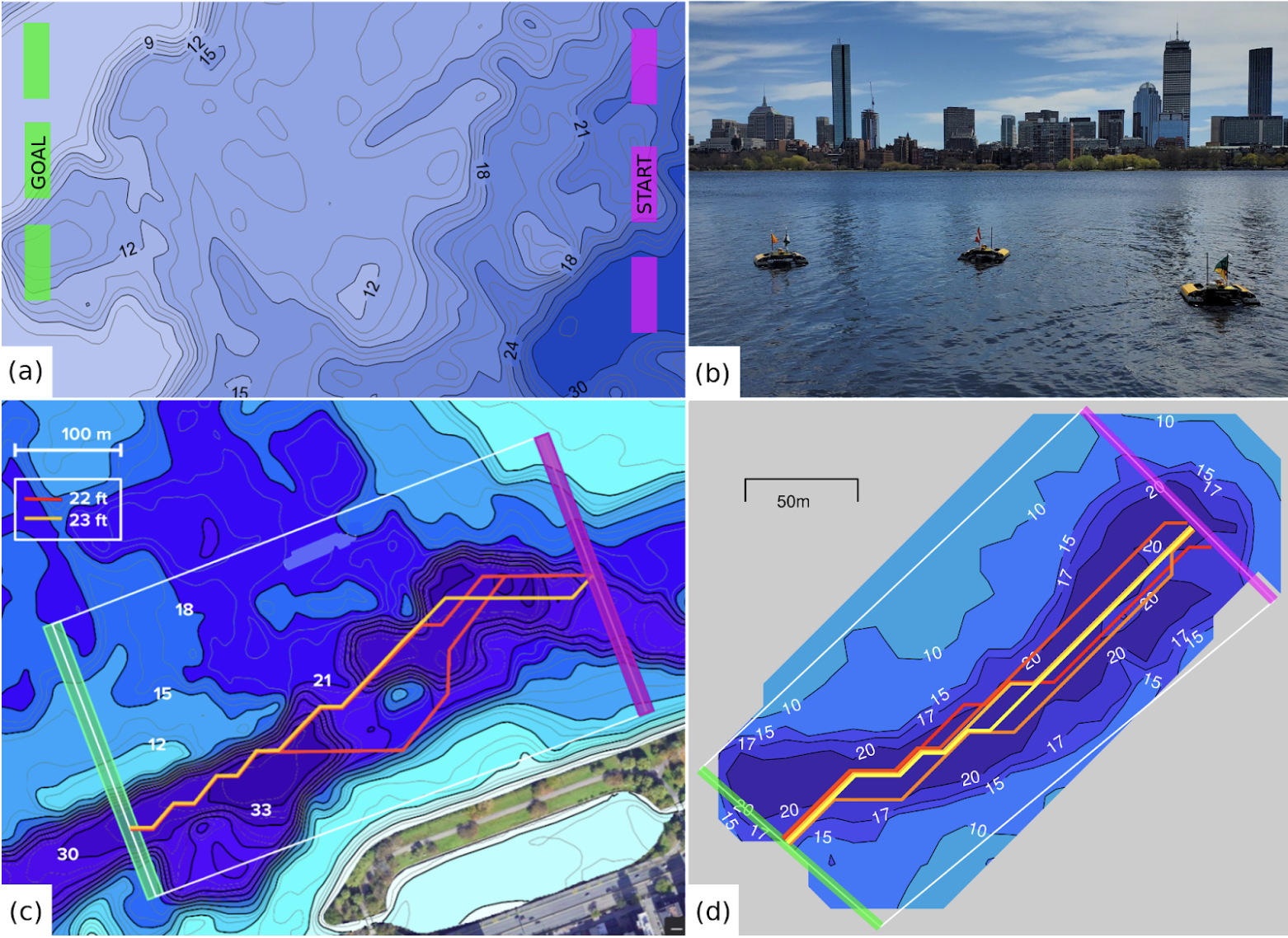Maintained by: mikerb@mit.edu  Get PDF
Get PDF
Proposal Based Adaptive Channel Search (PBACS)
This project addresses the problem of quickly finding a deep channel in a body of water using multiple unmanned vehicles. Our approach uses a gaussian process regression to build a non-parametric model of the bathymetry. These models are fused using a decentralized modified Kalman consensus algorithm which operates intermittently, and does not require a fully connected network graph to converge. Actions for each vehicle in the group are allocated using a new proposal and auction algorithm PBACS, which directs the search along paths that may still be viable. All of these techniques are completely decentralized, and the inherent robustness is critical as we find communication dropouts can happen often in the field.




| Status: | Ongoing since Summer 2021 |
| Sponsor(s): | United States Military Academy at West Point and the Office of the Undersecretary of Defense for Research and Engineering (ACC-APG-RTP W911NF2120206) |
| People: | Tyler Paine, Nick Gershfeld, Mike Benjamin (PI) |
| Robots: | https://oceanai.mit.edu/pavlab/herons |
| Software: | MOOS-IvP public codebase, MOOS-IvP-Pavlab codebase |
| Photos: | https://oceanai.mit.edu/media/WestPoint2022/album |


Recent Publications

Document Maintained by: mikerb@mit.edu
Page built from LaTeX source using texwiki, developed at MIT. Errata to issues@moos-ivp.org.
 Get PDF
Get PDF

